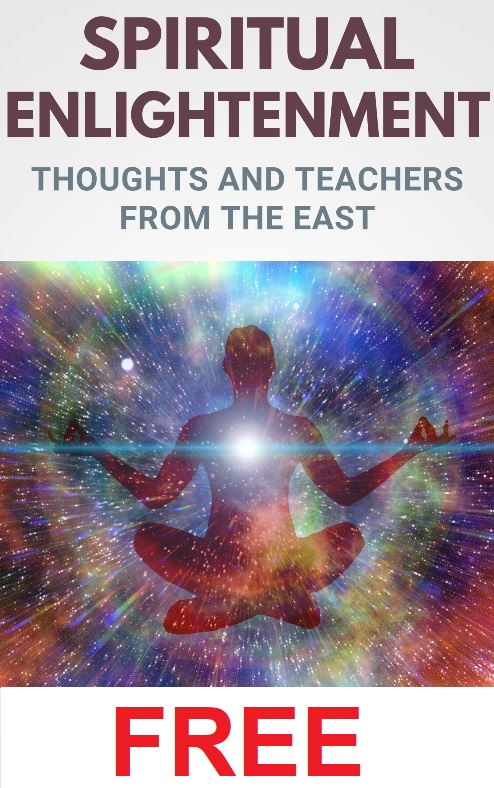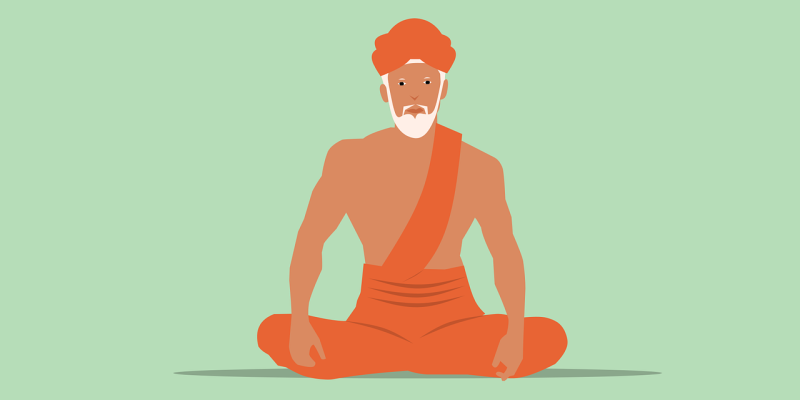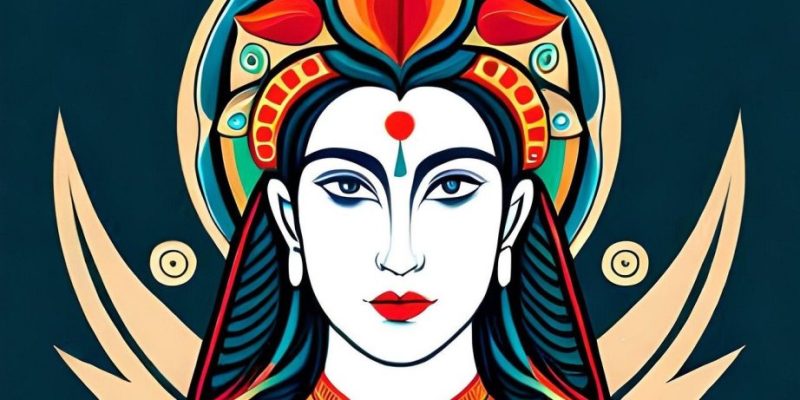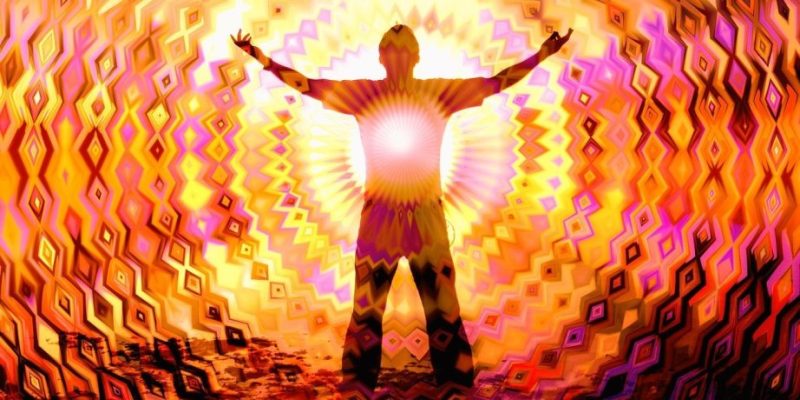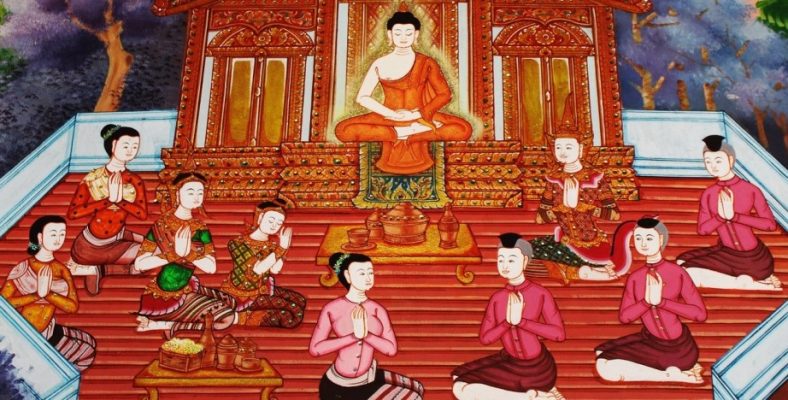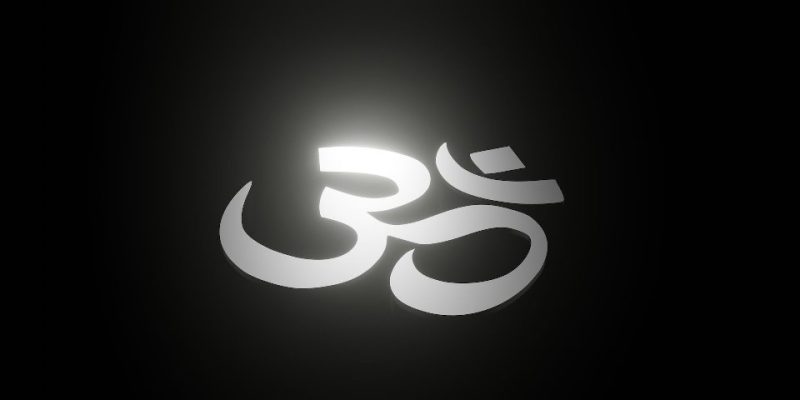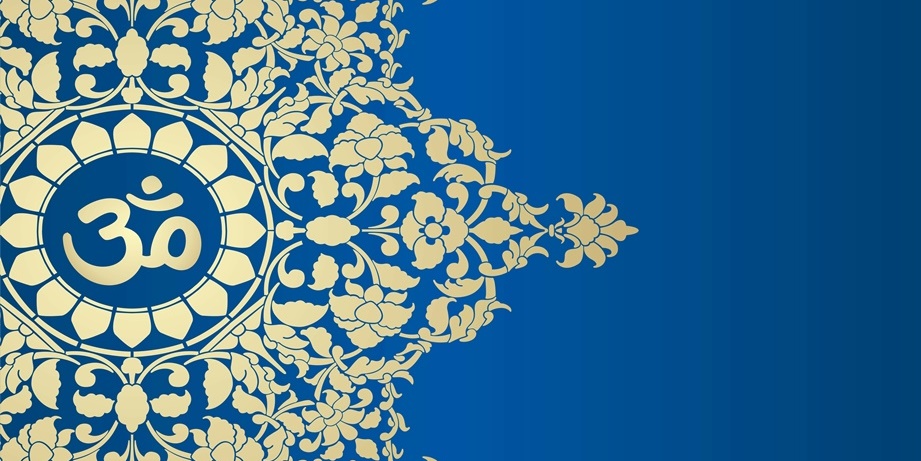
Although Non-dual Vedic teachings were certainly not “invented” by him, the Indian scholar, teacher, and sage Adi Shankara (also known as Adi Sankara or Adi Shankaracharya) is widely considered the “Godfather” of Advaita Vedanta.
His own Advaita teachers and Gurus were the likewise well-known sages Gaudapada and Govinda. Shankara was also interested in Yoga (as techniques to gain purity and steadiness of mind) and meditation practices such as expounded in Patanjali’s Yoga Sutras.

Adi Shankara most likely lived in the 8th or 9th century CE (exact dates are unknown), and he synthesized the Vedic spiritual knowledge of his time, notably that of Advaita Vedanta. Mind, however, that some within the Indian Advaita tradition in India claim that he lived in the 5th century BCE.
In any case, Shankara also wrote scholarly interpretations on the Brahma Sutras, the major Upanishads, and the Bhagavad Gita, apart from a range of didactic works. Nevertheless, because of his later fame (which only really started in the 14th century), many texts (more than three hundred) have been attributed to him, and as such it’s not always clear which of those were actually written by him.
His works are considered of great erudition, and it’s even thought that he was the driving force of the resurgence of Advaita as the prominent Indian philosophical and spiritual direction, and the subsequent decline of Buddhism in India.
Adi Shankara’s main focus in his writings was on knowledge concerning Spiritual Awakening i.e. Self-Realization, notably with regard to the central theme of unveiling the true identity of the Jivatman as the eternal non-dual Atman-Brahman divine unity. That is, Spiritual Liberation is attained in the current life by recognizing i.e. realizing the identity of Atman and Brahman, as summarized in the Mahavakyas.
In general, Shankara was against ritual and worshiping practices such as, for instance, common in Bhakti Yoga, because that would introduce duality by implying that the Self (Atman) is different from Brahman. That is, he claimed that he who deeply understands that Atman and Brahman are identical will not engage in “worshiping himself” being both a ridiculous and contradictory act.
Nevertheless, Shankara did recognize the need of purifying and stabilizing the mind to be able to understand “the Truth” and gain Self-Knowledge, which could also be achieved (or it could be of help) by observing certain Yamas and Niyamas (simply said: Yamas are the things one should not do and Niyamas are the things one should do i.e. ethical directives). Some of these Yamas and Niyamas did include rituals and rites, and Shankara wasn’t necessarily against those.


